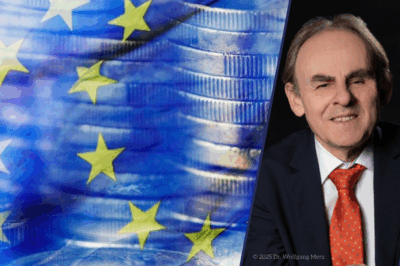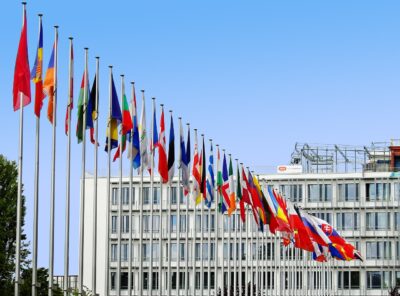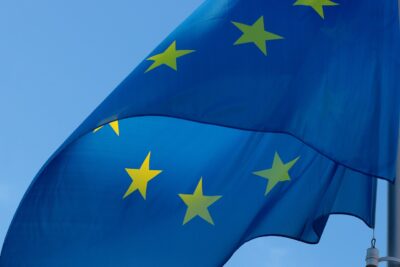Impulse

Europa in der Zange: Ökonomie, Sicherheit, Entscheidungsfähigkeit (Dr. Wolfgang Merz)
Europa steht unter massivem ökonomischem, sicherheitspolitischem und institutionellem Druck. Der Impuls von Dr. Wolfgang Merz zeigt, warum 2026 zum Schlüsseljahr für Europas Handlungsfähigkeit wird.
Zum Beitrag

Droht eine neue Schuldenkrise in der Eurozone? (Dr. Wolfgang Merz)
Frankreichs Haushaltslage verschärft sich: Mit über 114 % Staatsverschuldung, schwachem Wachstum und politischer Zersplitterung steht die zweitgrößte Volkswirtschaft der Eurozone unter besonderer Beobachtung. Ratingagenturen reagieren mit negativen Ausblicken, die Zinsen steigen, das Vertrauen der Märkte sinkt. Dr. Wolfgang Merz analysiert die zentralen Risiken – und die Unterschiede zur Eurokrise vor zehn Jahren.
Zum Beitrag

404-Policy Not Found – Wie Schweden seine feministische Außenpolitik (wieder) verloren hat
Schweden war einst Vorreiter feministischer Außenpolitik – bis 2022 das Label verschwand. Was bleibt vom politischen Anspruch und wie relevant ist der Begriff „feministisch“ für tatsächliche Veränderung?
Zum Beitrag

Comment réglementer le travail du sexe ? – Vers une Europe aux approches multiples
Comment réguler le travail du sexe dans une Europe divisée sur le sujet ? Cet article explore les modèles législatifs existants et les enjeux sociaux, politiques et humains liés à cette question encore taboue.
Zum Beitrag

Die wachsende Bedeutung des Euro als internationaler Reservewährung: Potential und Risiken (Dr. Wolfgang Merz)
Die internationale Rolle des Euro verändert sich. Spätestens seit den Verwerfungen der Trump-Jahre steht Europa vor der Frage, wie stark seine Währung im globalen System wirklich sein kann. In diesem Beitrag analysiert Dr. Wolfgang Merz Chancen, Risiken und politische Voraussetzungen für den Euro als internationale Reservewährung – ein Thema, das weit über die Finanzmärkte hinausweist.
Zum Beitrag

Short-cut to a New Europe – Is Treaty Change Still in Sight?
Calls for EU treaty reform are growing louder as the Union prepares for future enlargement and ongoing geopolitical challenges. This article explores the legal, political, and institutional barriers to treaty change — and the consequences of doing nothing.
Zum Beitrag

Student Puppets on Orbán’s Think Tank String – How Hungary’s MCC Expands Its Political Influence through Education
Hungary’s MCC, backed by the Orbán government, is expanding across Europe — blending education with political influence. This article explores how the think tank builds elite networks while pushing a conservative, nationalist ideology.
Zum Beitrag

ValEUs Policy Brief no. 6 – Amazon Deforestation Crisis – Fighting for Climate Action and Sustainability
In this sixth issue of the series, María Gabriela Barraza and Nicole Quijano discuss the Amazon Deforestation Crisis.
Zum Beitrag

ValEUs Policy Brief no. 5 – Discrimination against Gypsy, Roma and Traveller (GRT) people in the EU (Verena Post, Miriam Wilke, Madita Hardegen)
In this fifth issue of the series, Verena Post, Miriam Wilke and Madita Hardegen discuss discrimination against Gypsy, Roma and Traveller people in the EU.
Zum Beitrag
